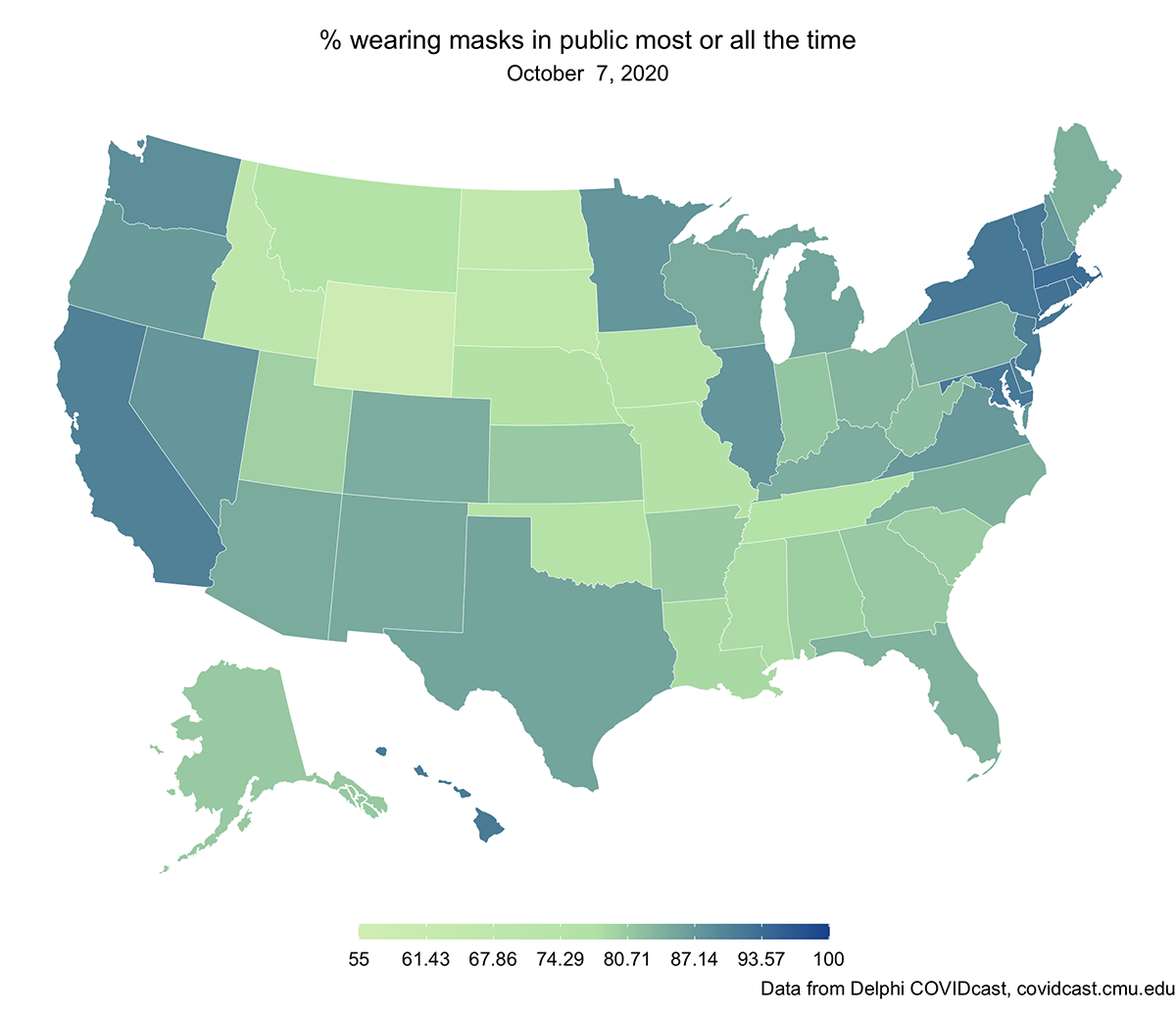COVIDcast Now Monitoring Daily U.S. Mask Use, COVID-19 Testing Carnegie Mellon Expands Symptom Survey Distributed to Facebook Users
Byron SpiceMonday, October 12, 2020Print this page.

Nationwide trends in mask use, access to COVID-19 tests and test results are now being monitored by Carnegie Mellon University and shared publicly as part of a symptom survey distributed daily to Facebook users.
Since April, CMU's Delphi Research Group has been collecting real-time data on self-reported COVID-19 symptoms nationwide, providing county-level information about the coronavirus pandemic that is updated continuously and available from no other source. The survey has now been expanded to include questions about how people are responding to public health recommendations, such as mask use, and whether people are getting the access to COVID-19 testing that they want.
"Some of these topics were partially addressed by the original survey, but we knew that as the pandemic changed and public health priorities adapted, our survey had to change, too," said Alex Reinhart, assistant teaching professor in the Department of Statistics and Data Science and a member of the Delphi group.
Aggregated data from the survey is updated each day and shared publicly via the COVIDcast website. Data also is shared in greater detail with health researchers. Delphi uses the data to develop localized forecasts of COVID-19 activity.
The University of Maryland has a similar effort, using a daily survey distributed by Facebook to gather international data on the pandemic. As part of its Data for Good program, Facebook distributes the surveys to a selection of its users each day. Facebook does not gather any information from users — CMU and the University of Maryland conduct the surveys off Facebook and manage the findings.
More than a million U.S. residents have responded since CMU's expanded survey was deployed a month ago.
Monitoring the prevalence of mask use and how it changes over time and in different locales will help CMU better understand where the virus is most likely to spread and what measures prove most effective in preventing its spread, Reinhart said.
In New England, hit hard by the first wave of COVID-19 early this year, the survey shows that most people wear masks. Thus far, the lowest rates of mask use are in the central United States, such as North and South Dakota, where case rates are now rising rapidly.
Questions have been added regarding COVID-19 testing — if people who want tests have access to them, whether people are testing positive and who is getting tested.
"Our survey doesn't replace official public health reporting on COVID testing and case counts, but it can provide insights not available any other way," Reinhart said. "By providing these signals to the public, we hope to give researchers, public health officials and journalists the information they need to form a more complete picture of the pandemic."
In its COVID-19 data gathering and forecasting efforts, CMU's Delphi research group is leveraging years of expertise as the preeminent academic center for forecasting influenza activity nationwide. The U.S. Centers for Disease Control and Prevention has designated the Delphi group as one of two National Centers of Excellence for Influenza Forecasting. At the CDC's request this past spring, the group extended and adapted its flu forecasting efforts to encompass COVID-19.
Byron Spice | 412-268-9068 | bspice@cs.cmu.edu
